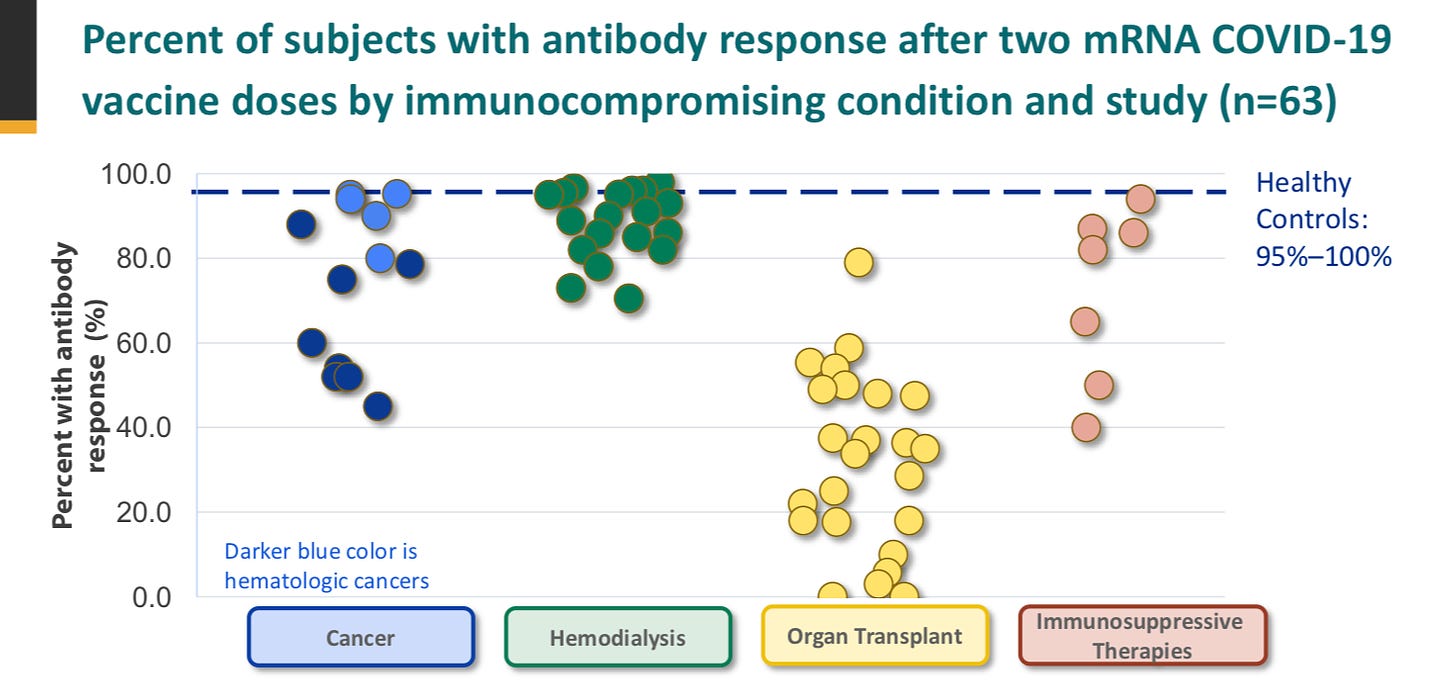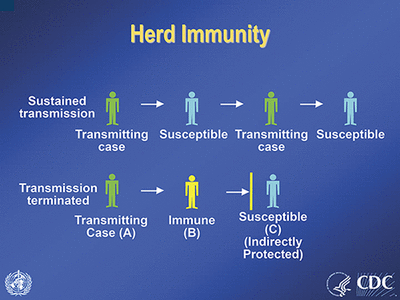Colin Powell passed away yesterday from COVID19. He joined 7,178 other fully vaccinated people that have succumbed to COVID19 in the Untied States. Why didn’t his vaccine work? There are two main reasons…
First, he was immunocompromised.
At 85 years old, Powell was fighting multiple myeloma—a rare type of blood cancer. In 2020, 32,270 people were diagnosed with multiple myeloma and the number of cases have steadily increased the past 15 years. It’s a very random cancer. We don’t know what causes it but certain groups are at higher risk: African Americans/Blacks; males; and older ages.
Multiple myeloma cancer attacks our plasma cells— cells that make our antibodies. This limits the body’s capability to fend off infections. There is no cure for multiple myeloma, but we have a few treatments that slow the progression of disease. Some patients get immunosuppressive treatments, which also weakens the immune system. So, a multiple myeloma patient’s immune system gets doubly wiped out: disease-induced and treatment-induced.
Because of this, multiple myeloma patients develop more frequent infections (7-fold increase in developing a bacterial infection and a 10-fold increase for developing viral infections) turning infection into its leading cause of death. The 5-year survival rate is 55.6%.

Unfortunately, disease also reduces multiple myeloma patients’ capability to generate immunity from vaccination. We’ve seen diminished responses from vaccines like influenza and varicella.
We’ve also seen diminished response to the COVID19 vaccine. This means that even if a multiple myeloma patient gets a COVID19 vaccine they may not mount a full protective response. Below is figure that shows the results of 63 studies that assessed vaccine effectiveness across immunocompromised groups. The dark blue dots are blood cancer studies, which have significantly lower vaccine effectiveness compared to other cancers (and compared to healthy controls). For example, one study found that only half of patients with blood cancer generate sufficient immune protection.

This is why, on August 13, the CDC and FDA approved a third dose for a number of immunocompromised patients. The booster is not a silver bullet, but seems to help. Among groups that have no detectable antibody response to an initial vaccine series, 33-50% developed an antibody response to an additional dose. Powell did not get the booster.
Second, society has failed to protect the vulnerable.
Individualized approaches don’t work for infectious diseases. Infections are literally caused by interactions. The decisions we make (like not wearing a mask or not getting a vaccine) directly impact those around us. And not just those around at the time. SARS-CoV-2 can linger in the room for more than 16 hours. Infectious diseases violate the assumption of independence. This is not functionally true for other health problems, like diabetes or cancer.
We have to stop transmission until we can build our immunity wall. Masks reduce transmission. Vaccines reduce transmission. And we have the tool, in ample supply, to build a protective wall for our most vulnerable. We just have to do it.
Bottom Line: Unfortunately Colin Powell died because of a deadly combination of an incurable cancer, old age, weakened immune system, and exposure to a deadly virus. The vaccine couldn’t save Colin Powell, but we could have. His death is a reminder of how serious this pandemic is and that we need to everything in our power to protect the 5.5 million immunocompromised around us.
Love, YLE



This sentence might benefit from additional info/context: "Powell did not get the booster." Other reports have indicated that he was planning to get the booster very soon. He had delayed because of his other treatments.
The last paragraph made me cry, "...we could have." When will we understand we have an obligation to protect the young, the old, the immunocompromised, the weak. As always, thank you for your presentation of the consolidation of the facts. I am ever so appreciative.